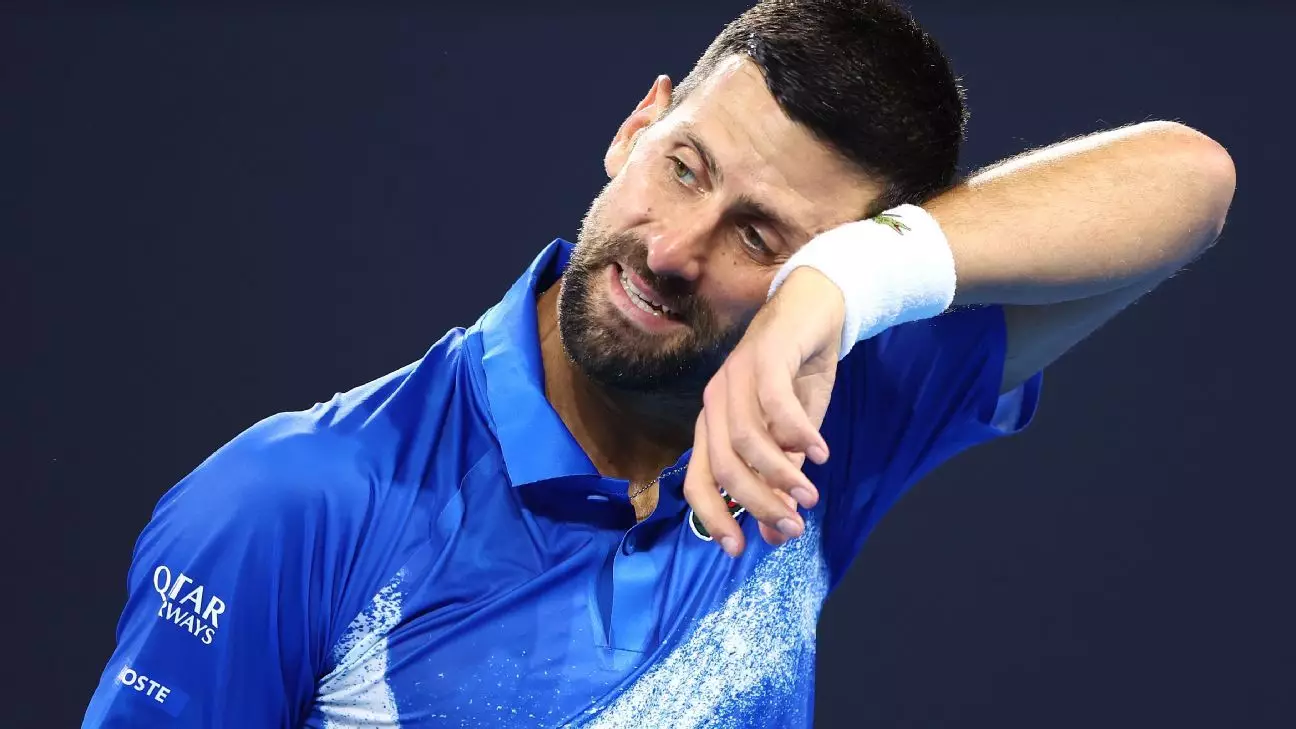Novak Djokovic, one of tennis’s most celebrated figures, has opened up about the emotional scars that linger from his controversial deportation from Australia in 2022. Despite his remarkable comeback, which saw him reclaim the Australian Open title in 2023, the impact of the events that transpired still haunts him. His experience in Australia not only resulted in legal battles but also left a profound psychological imprint. When Djokovic stepped back onto Australian soil, he found himself grappling with residual anxiety, a stark reminder of the difficulties he faced just three years prior. These feelings manifest during passport control, where a sense of dread accompanies what should be a routine process.
The saga surrounding Djokovic’s visa cancellation was not merely a legal issue; it was emblematic of a broader conversation about individual rights during a global pandemic. Since the onset of COVID-19, public sentiment about vaccinations has fluctuated, and Djokovic became a focal point amidst these debates. His refusal to comply with vaccination mandates ultimately led to a situation where he was detained for days, followed by the dramatic revocation of his visa right before the tournament commenced. This moment not only marked a significant turning point in Djokovic’s career but also showcased the lengths to which governments could go in enforcing policies intended to protect public health.
Without a doubt, Djokovic’s emotional struggle is compounded by the gravity of his circumstances. His statements reveal an unsettling truth: that fear and uncertainty can persist, even after one has seemingly triumphed over adversity. The Australian Open, a venue where he has historically excelled, has transformed into a place of mixed feelings for him. The bittersweet flavor of victory is tainted by echoes of past humiliation.
It is essential to recognize Djokovic’s incredible ability to bounce back from these challenges. His triumphant return to the Australian Open in 2023, where he secured his 10th title, is a testament to his mental fortitude. He openly acknowledged the emotional weight of that victory, crediting the unwavering support of his family and team. This juxtaposition of past trauma alongside present triumph underlines both the resilience of the human spirit and the complexity of emotions in professional sports. His narrative is not just one of success but also a poignant reminder that the road to recovery can be fraught with reminders of what one has endured.
As the next Australian Open approaches, scheduled for January 12, Djokovic’s ongoing journey is pivotal not only for him but for the sport as a whole. He continues to hold the title for the most men’s singles wins at this prestigious tournament, yet the psychological ramifications of his earlier experiences may influence his mindset going forward. While he expresses that he holds no grudges, the shadows of the past cannot easily be dismissed. Djokovic’s story serves as a critical reflection on the intersection of sport, health policy, and personal resilience, reminding us that even the most accomplished figures can experience deep-seated emotional struggles while navigating the complexities of their careers. The upcoming tournament will not merely be another competition for Djokovic; it represents a reclamation of agency and the courage to confront the past head-on.


Leave a Reply